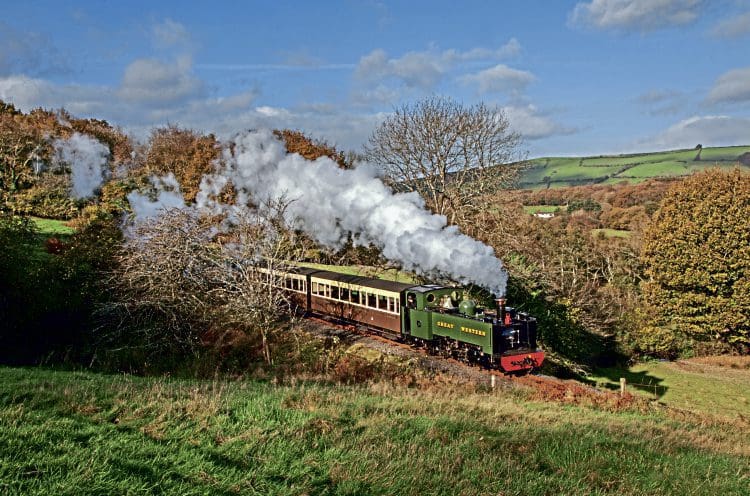By Martin Creese
With the steam era becoming a distant memory and the increasing commercial realities of running a heritage railway coming to the fore, it is rather nice to see that in a corner of Wales a quiet but very welcome revolution is taking place, with a line emerging into the limelight and presenting itself in the 21st century just as it was 80 years earlier.
The railway in question is the Vale of Rheidol Railway which is being rolled back to the halcyon days of the Great Western Railway. The carriages are resplendent in chocolate and cream, the engines in Great Western green, and as each is overhauled, the air pumps that were positioned so prominently on the front of the side tanks after the introduction of air brakes are being hidden inside the side tank.
Enjoy more Heritage Railway Magazine reading every month.
Click here to subscribe & save.

On the railway itself, modern signage is being removed and period pieces installed and the intermediate stations returned to their GWR condition. Credit for bringing this vision to life sits with the railway’s owners the Phyllis Rampton Narrow Gauge Railway Trust.
The railway has also enjoyed growing passenger numbers over the last few years with around 60,000 now carried annually.
Regauged again
The most recent example of this approach is the restoration of cattle wagon No. 38088. Built by the GWR in 1923 it was sold with sister vehicle No. 38089 to the Welshpool and Llanfair Railway where it was regauged to 2ft 6ins.
In 1959 it was acquired by the Ffestiniog Railway, regauged again and converted to a covered wagon and used as a stores wagon, generator van and bicycle van before being reacquired by the Vale of Rheidol in 2014.
The restoration was completed in time for it to debut on a 30742 Charters photographic day in November resplendent again in GWR livery. Sister vehicle No. 38088 also is still in existence at Welshpool where it runs as part of that line’s vintage goods train.
The Vale of Rheidol Railway was authorised by an Act of Parliament in 1897 with construction commencing in 1901 and opening on the December 22 1902.
The line became part of Cambrian Railways in 1912 and then the Great Western Railway in 1923, finally becoming part of British Railways at Nationalisation in 1948.
The line went on to outlive all the other narrow gauge absorbed lines and remained the last British Railways’ steam-worked line until its privatisation in 1989.
It was originally built to serve the agriculture and lead mines of the Rheidol valley and provide an outlet at Aberystwyth harbour. As the lead mines declined it was tourism that began to sustain the Vale of Rheidol.
Read more in Issue 236 of RM – on sale now!




